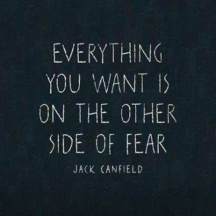This is part two in a six-part series in which Acharya Fleet Maull explores some major themes we all struggle with:
1. Virtue & Goodness, the Forgotten Conversation
2. The Human Condition and our Western Culture of Unworthiness
3. The Neuroscience of Transcending Fear-Based Mind and Culture
4. Fundamental Goodness vs. Fundamentalism
5. Working with Fear & Vulnerability
6. Awakening Through Service
What leads us to distrust our own innate goodness and that of others? What aspect of our western culture causes us to feel bad about ourselves? Where does this profound doubt about our worthiness come from?
No matter how enlightened our parents are, it is almost impossible to grow up as a young child and not end up with at least a mild case of insecurity about ourselves. The extreme vulnerability we experience as infants inevitably leads to feelings of profound helplessness and fear, despite the good intentions of our caregivers. Furthermore, in addition to our personal hardships from childhood, the world is relentlessly bombarding us with messages about how unworthy and defective we are.
On one hand, there are many beautiful aspects to our western culture. Even our American political system (whatever our political leanings may be) upholds kernels of wisdom, sensible philosophies, and sane principles. Western culture is replete with tremendous wisdom and knowledge. And on the other hand, there are also real problems. On some level, this American culture is like a huge ceremony of unworthiness.
By ceremony, I mean the way we live our lives, the way we create our culture and the way we manifest in our world.
The underlying and prevailing assumption in this culture is that we are not good enough—that we are not okay the way we are. The main assumption is that we are fundamentally flawed.
So where does that begin?
Well, of course, we’re born into a very fragile situation—we are completely dependent on the goodwill of our parents for our very survival. Once we’re out of the womb and kind of a separate being, we’re still type of a unitary state with our mother. Gradually, over the early months we start to individuate, and that is a very fragile process. At this point, we still don’t have a self yet, in psychological terms or spiritual terms—we don’t have a strong sense of “my own being” and “my own presence” or “who I am.” How can we, as a two-year old, stand in front of our screaming parents and say “well, even though I’m only two years old, I don’t have to take that in.. that’s just their suffering.”
As a young child—any time we’re not feeling good and secure—we experience the world as though we were falling into a black hole of emptiness.
This is an unsettling, terrorizing, incomprehensible state as it lacks structure to hold or protect us. Even the most caring parents cannot keep us from getting an earache and being in extreme pain for several hours before the medicine begins to work, during which time that little being is terrified, without any means of rationalizing what is happening, lost in that black hole of emptiness.
So everyone, no matter how benevolent the surroundings or parents, is eventually confronted with that contrast between safety and threat, peace and dread, well-being and misery.
So out of that, almost out of a sense of terror, almost like being dropped out of a spaceship, we start grabbing onto anything we can to start to paste together a sense of self. And that happens throughout our early childhood and into our adolescence— we build ourselves out of whatever is available to us. It’s important to recognize that for this little being any reference point is better than no reference point. In this way, even reference points like violence, chaos, shame, pain, hurt, can be powerful reference points—they’re better then nothing.
In fact, shame—the painful feeling arising when we perceive ourselves as inadequate, unwanted, defective and unworthy—is one of the most powerful reference points available to us. Why? We hold on to shame because it is familiar and habitual and, somehow, feels so real. How often do we tell ourselves “I’m not okay, I’m not good enough, I’m not wanted here, I don’t belong, I’m a mess” ? That experience keeps recurring and gives us a strong hit, which we can trust. It confirms our existence: “I feel like shit, therefore I exist!”
Furthermore, the culture in which our parents are raising us—the set of values and acceptable behaviors we are taught to follow—also breeds shame. When, as children, we do not meet these expectations and do not conform to the norm, even the most loving parents get scared and concerned.
Despite their attempts at hiding what they feel, they would have to be really enlightened for that fear not to show through. And when we perceive that fear, how do you think we interpret it when we are two months old, six months old or even three years old or five years old? We interpret it as “uhhh ohh, that part of me won’t be loved, that part of me will be rejected.” And we internalize that impression that we are fundamentally flawed and wrong as the truth of who we are.
Many parents are not so benevolent, educated, or concerned about their children’s self-esteem; and many parents communicate with their children in an overtly shaming or disparaging way… which isn’t even touching on how we respond to overt neglect, abuse, abandonment, and so forth.
This is a complex issue, here in what I call our “western culture of unworthiness.” I just wanted to get the conversation going, so, please, take some time this week and next to reflect on what I am surfacing here. Start and join a much deeper conversation with yourself and the world around you—your girlfriend, father, nephew, aunt—because this is something we all struggle with on one level or another, it just shows up in various different ways. How does it show up for you?
Please, feel free to answer that question or ask another in the comment section below (I’ll be reading and commenting back). I encourage you to share whatever may be arising for you in relation to the ideas and questions I’m raising here. And finally, please join us next week for part three (in this six-part series), as we dig even deeper and start to delve into the next phase of “Working with Fear & Vulnerability.”
Until next time,
Acharya Fleet Maull
Love elephant and want to go steady?
Sign up for our (curated) daily and weekly newsletters!
Author: Acharya Fleet Maull
Editor: Renée Picard
Photo: elephant archives









Read 7 comments and reply